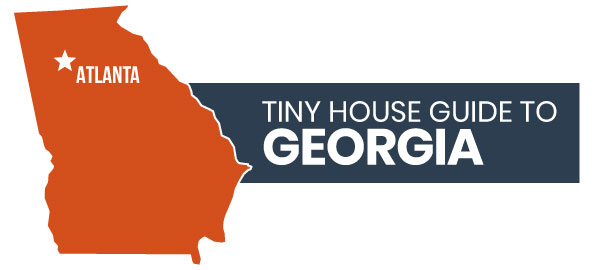
QUICK FACTS:
Are Tiny Houses Legal In Georgia: YES*
Tiny House Costs In Georgia: $35,000 – $110,000
Tiny House Friendly Cities: Atlanta, Augusta, Savannah
Mustard Seed Tiny Homes Suwanee, GA
Run by couple Clint and Haley Gooch, Mustard Seed Tiny Homes creates park model, modular, and mobile tiny houses on wheels. The couple also sells custom trailers and tiny house shells for those who want to build on their own. Clint has almost a decade of carpentry experience and is extremely passionate about creating tiny homes. Haley manages the creative marketing and aesthetics of each house. Their tiny houses are each customized to meet the buyer’s needs.
Kelly’s Tiny Homes Griffin, GA
Kelly’s Tiny Homes offers both standard and fully loaded models of custom-built tiny homes. All homes are fully customizable and can be changed to suit the needs and desires of any customer. They also offer shell packages for the “do it yourself” builders. The owner, Kelly, has been a state certified and licensed contractor for over 20 years and has been building custom homes for his entire life. Each model or shell can have as much or as little already finished as requested by the customer.
Homestead Tiny House Co Alpharetta, GA
The Homestead Tiny House Co has four different trailer models for sale, each designed to accommodate the needs of a different demographic. The company has 11 specialized builders who are well equipped to build the tiny house model that best fits yours desires. Their website contains a thorough video of each tiny house design choice and the distinct features included.
Bolder Container Homes Atlanta, GA
Bolder Container Homes is a building company created by brothers Gabe and Jude Beckman. The group started the project around three years ago because of their passion for creating small, affordable living structures for a larger population.
The brothers also place a huge emphasis on sustainability, a component that really inspired their work. Instead of sitting in a train yard, these unique box cars are repurposed with the mission of becoming homes for families. You can purchase plans for your own container home directly from their website above.
Georgia Trailer Outlet Cartersville, GA
If you are looking for a trailer to hold your tiny home, Georgia Trailer Outlet has an array of hauling products for purchase. The business serves the entire south-eastern region of the United States by searching the country for reliable trailer products to sell including flatbed and utility variations with abundant dimension options.
Big Tex Trailer World Commerce, GA
Big Tex Trailer World is a popular source for trailers in the Jackson County area. They use manufacturers from many different groups including Trailer World Trailers, CM Truck Beds, Master Tow Dollies, Aluma, CM Trailers, and several more. They have a vast inventory of trailer options at your disposal.
Georgia Tiny Houses For Sale
If you’re looking to buy your own tiny house ASAP, check out these local tiny house listings. If you are having trouble finding your dream tiny home in Georgia, you might want to checks out the listings in neighboring states like Florida, Tennessee, or South Carolina.
You can always take your tiny house on wheels and move it to the area in Georgia that you’re hoping to live.
Georgia is a quality state to live tiny in. It has a low cost of living, is a generally friendly environment, and has over 50 state parks if you’re looking to experience nature. Check out these local listings:
Want to try tiny house living without making the commitment to buying your own home? Renting a tiny Airbnb in Georgia can give you the opportunity to temporarily live in a tiny house and fully experience the lifestyle before purchasing your own property. Here are some first-rate tiny homes for rent.
The state is filled with mountain ranges, valleys, hills, waterfalls, and rich, lush forests filled with oak and hickory trees. You’ll find the beautiful Appalachian Mountains in the northwest region, the Blue Ridge Mountains in the northeast, the Piedmont plateau in the central portion of the state, and the Coastal Plains in the south. All of these areas are ideal for adopting a more natural, sustainable, and intentional lifestyle. Georgia is a perfect state to move into an environmentally friendly tiny home.
Some areas of Georgia are especially accommodating to the tiny living community. The greater Atlanta area in particular is home to several small pockets of sustainable living communities. Living in a tiny house within a community gives you access to shared resources and helps to keep your cost of living and financial burdens much lower.
Not only are tiny communities helpful in increasing your access to resources and reducing your bills, but they also facilitate an intimate social connection between members as they strive to educate and genuinely improve lives. There are several tiny house communities in Georgia that you can consider for your new home.
Check out some of the tiny house communities located in the peach state:
The MicroLife Institute in Atlanta, GA
The MicroLife Institute is tiny living community with a strong passion for educating, advocating, and researching pilot projects that deeply reflect their philosophy, “less is more.” Created by micro living innovator Will Johnston and located just outside of Atlanta, this group of intentional life activists believes in using this policy to create change across the globe.
The institute serves as a hub that connects individuals, families, policy makers, creatives, and professionals with one another. The communal experience motivates people to rethink how we utilize our space while creating connection and educating members on social conscience. While all of the tiny cottages built by the institute are currently occupied, the group offers a myriad of programs, events, festivals, classes, and resources to integrate anyone into their way of life.
Green Bridge Farms in Road Guyton, GA
Located right outside of Savannah, Georgia, Green Bridge Farms is an intentional living community aimed at encouraging sustainability and a minimalist lifestyle. Developed by farm owner Michael Maddox and his wife Annette, the community places a strong emphasis on gardening and environmental consciousness.
Their farm is located 30 minutes from the metropolitan hustle in Savannah but is hidden away in a rural environment. The couple is accepting and welcoming to all. They will provide anyone an opportunity to come join their community, learn about their lifestyle, and integrate themselves into their peaceful village.
All community members share eight acres that feature a pond stocked with fish, an organic vegetable garden, and a grove of fruit trees. The organic produce they offer community members is highly revered. At this time, all of the tiny houses on the farm are being lived in and they do not have active room for additional members. However, you can follow the link above to see when a spot in the village might open up.
See some exciting social groups and events to join below. If none of these seem to interest you, we encourage you to look for your own groups and comment your findings at the bottom of our page. Or better yet, start your own group and tell us about it!
Tiny House Atlanta Group
The Tiny House Atlanta Group is a program extension for the Georgia nonprofit MicroLife Institute. While members of this group do not live in the community the institute has created, they can still benefit from the education and camaraderie that exists. This social page allows people to share ideas and information about environmentalism, minimalism, and intentional living, as well as get immediate updates on events, festivals, and projects hosted by the community creators.
Tiny Houses In The Big Peach
Tiny Houses in The Big Peach is an extension of a tiny house workshop in Atlanta. Though the group originated primarily from the workshop, anyone who’s interested in smaller, greener, downsized housing is welcome to join the page and contribute to their conversations about living sustainably.
The building codes for the state of Georgia (Read the PDF here) that cover tiny homes are diverse amongst each of the 152 counties within the state. Georgia differentiates permanent tiny houses from tiny houses on wheels and each come with their own set of rules. There are also rules for additional dwelling units, or ADUs, that pertain to tiny houses on the same property as an existing traditional house. Each type of tiny house has specific regulations that you have to meet for legal and safety reasons. Here’s a general overview of the state laws for each type of tiny house:
Stationary Tiny House
The building laws for permanent tiny homes are part of an ordinance from the Georgia Department of Community Affairs called Appendix “S.” (Read the PDF here) This ordinance is applicable for tiny houses used as single dwelling units only, which means the house is a stationary property occupied by a single person or by people living together as a family. This unit cannot include more than six residents living together as a household.
The department has recently approved a reduction in the minimum habitable room size for all dwellings under this classification. This means you can now classify your tiny house as a single dwelling unit if your building follows these postulates.
For your home to be classified under Appendix “S,” your tiny house must be on a permanent foundation that is between 70 and 400 square feet. It also must NOT include any wheel-based structures, which are still considered recreational vehicles in Georgia. These have their own set of codes and laws spelled out below.
Mobile Tiny House
If the tiny house is designed to be movable, whether or not it has its own wheels or was built on an independent trailer, it is considered to be a recreational vehicle by the state, which have their own set of regulations.
The laws regarding a recreational vehicle in the state of Georgia apply to motor homes, travel trailers, truck campers, or camping trailers designed for recreational or emergency human habitation. Before the tiny house movement grew, the vehicles falling under this jurisdiction were often primarily intended for recreational or seasonal use only.
Tiny homes changed the definition of recreational vehicles within the confines of each state. Often referred to as Tiny Homes on Wheels (THOWs), these wheeled vehicles are typically built on a utility trailer yet are still intended for permanent residence. This differentiating factor is the cause of varying classifications of these houses across state lines.
In Georgia, THOWS do not fall within the scope of the state’s building codes for permanent dwellings but are instead classified as recreational vehicles.
The Georgia Department of Transportation (GDOT) regulates these vehicles for title and licensing purposes through the county’s vehicle licensing agency. To answer more questions about state regulations of RVs, see the licensing information from the RV Industry Association.
Tiny House Laws in Key Georgia Counties: Local Zoning Ordinances
In the state of Georgia, most jurisdictions — cities or counties — are divided into zones or districts that regulate the physical development of land and limit the uses to which a property may be put on the land.
The Atlanta metropolitan area has more than 60 different jurisdictions, each with its own unique approach to land use. (Read the PDF here) These jurisdictions can independently regulate height, size, placement, and density specifications, as well as parking requirements for properties apart from the general building laws of the state.
Some cities and counties tend to be more cooperative in allowing tiny properties, while others have created their own set of individual anti regulations. Let’s look at the conventions in place within a few individual counties.
Fulton County, Georgia
Fulton County has been recognized as an exceptional area to live tiny in Georgia. In July of 2015, a council meeting was held in order to determine whether the current code of ordinances allowed for the construction of tiny houses and micro-unit apartments and, if not, how the code could be revised to make the county more friendly and inclusive to smaller housing alternatives.
The council was asked to study current city, county, and state regulations that restrain the construction of tiny houses or micro-unit apartments. The commissioner of the Department of Planning and Community Development issued the recommendation within 180 days of adopting the legislation. Today, the regulations that prohibited tiny house inclusion have been amended in the legislative codes of Fulton County.
Murray County, Georgia
Murray County has specific restrictions in their building codes for small properties outside the regulations of the state. In order to build a tiny house on your own property in Murray County, the building has to meet the minimum square footage within the district in which the parcel is zoned. The home must also pass all minimum residential building codes. Here are the specific dimensions for each zone within the county:
- 584 square feet in an AG Zone District
- 864 square feet in an RR Zone District
- 1,200 square feet in an SR Zone District
Monroe County, Georgia
Monroe County has very recently become more inclusive of tiny properties. In January of 2021, a 4-0 vote amongst the Monroe County Commissioners allowed a local developer to put 12 tiny homes for rent on 11 acres of land.
A request for zoning law alterations was necessary for the creator because Monroe County does not presently have a clause in its zoning ordinance that deals directly with tiny houses.
Commissioners originally refused to take action regarding the developer’s request. The final vote was taken in January 2021 and the developer’s plea was seen through despite slight pushback from his neighborhood community.
The request for modification in zoning ordinance was deliberated for just under an hour before his needs were granted by the commission. General building laws in Monroe County are currently being analyzed.
Lumpkin County, Georgia
Lumpkin County has created specific regulations apart from the State of Georgia in regards to tiny house properties. These specific amendments recognize that there are many types of tiny homes and that each type is built in a precisely different way. Thus, a homeowner must identify which types of tiny houses fall within the scope and application of building codes within the county. The Lumpkin County Land Use and Development Codes (Read the PDF here) recognize five types of tiny properties.
The types of tiny homes that have been APPROVED for development in Lumpkin County are:
- Residential (modular) Industrialized Buildings
- Site-Built Dwellings
- Shipping Container Homes
The types of tiny homes that have NOT BEEN APPROVED for development in Lumpkin County are:
- Recreational Vehicles
- Manufactured (Mobile Homes)
Brantley County, Georgia
There are currently no restrictions on container homes anywhere in the County of Brantley. There are also no requirements for placing them on a permanent foundation. However, they must meet electrical, plumbing, and other building permit requirements of the county.
Tiny House Regulations in Georgia Cities
In order to address concerns about construction regulations over tiny properties, government leaders amended an appendix within the International Residential Code (Read the PDF here) to account for tiny house projects. Under this new legislation, the minimum habitable room size for a dwelling property changed from 120 square feet to 70 square feet in order to allow for tiny house construction.
The issue is, however, that local cities and jurisdictions each have the freedom to adopt the amendment from the IRC on their own accord. City lawmakers have the privilege to alter regulations within their zone. Some cities are especially accommodating to tiny house construction while others have regulations opposing construction.
Here are examples of cities in Georgia and their specific laws:
Atlanta, GA
As of May 2017, the city of Atlanta now allows for ADUs or accessory dwelling units alongside traditional properties. Tiny houses on wheels, however, are still not allowed explicitly by the codes, but you might be able to apply for a variance.
This is a zoning change to category R5 lots, which already allow for two-family residences also known as duplexes. The maximum square footage allowed per owner remains the same, but you can now divide your properties into a main house and a secondary house.
The ordinance allows for the square footage to be broken up into two properties as long as the secondary house is smaller than 750 square feet.
Previously guest houses could not contain a kitchen and could not be used as a permanent residence. This has all been amended.
Dahlonega, GA
There are specific tiny house restrictions in the city of Dahlonega.
Any vehicle that can be or has been licensed by the state for use on the highways such as a bus, camper, trailer, or motor home cannot be used in the city of Dahlonega as a permanent dwelling property and cannot be provided with an address.
These mobile properties also may not be approved for a separate electric meter or permanent connection to a sewage disposal system. Occupancy of these buildings is considered temporary and is legally limited to 90 maximum days without any approval of a variance from the city.
East Point, GA
The city of East Point has created its own codes for the allowance of tiny properties. Here’s what you need to know about the types of tiny houses allowed in the area:
- Stationary, standalone dwelling units (not secondary properties) have a restrictive minimum of 900 square feet
- ADUs are allowed with a permit but will not be given their own address
- Tiny house communities are prohibited in the city
- Tiny houses on wheels are also prohibited
Statham, GA
Statham City Council Work Session weighed the pros and cons of allowing a tiny house community within city limits. Previously, the minimum house size within the city of Statham was 1600 square feet, but the proposal for the tiny house community was 800 square feet, half of the current allotted size. The motion to alter legislative building codes by the city council was approved.
Tiny House Laws In Georgia:
Tiny House Building Codes In Georgia:
*Disclaimer: The information provided on this website should not be taken as an expert opinion, consultation, or advisement of any kind. Building codes, home building, zoning, local laws etc are complicated and ultimately your responsibility to execute legally and safely. You must do your own research, consult with and verify with all applicable authorities, local officials, regulatory bodies, code and zoning officials, and city/state/federal governments. See our full legal page for further information here: https://thetinylife.com/about-us/legal/






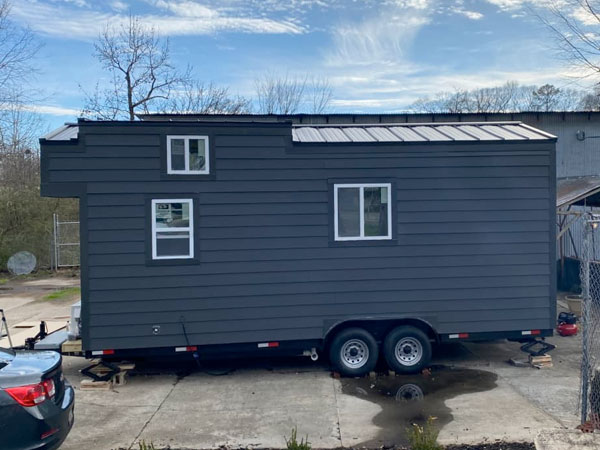
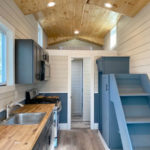
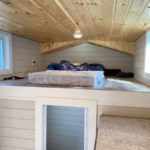

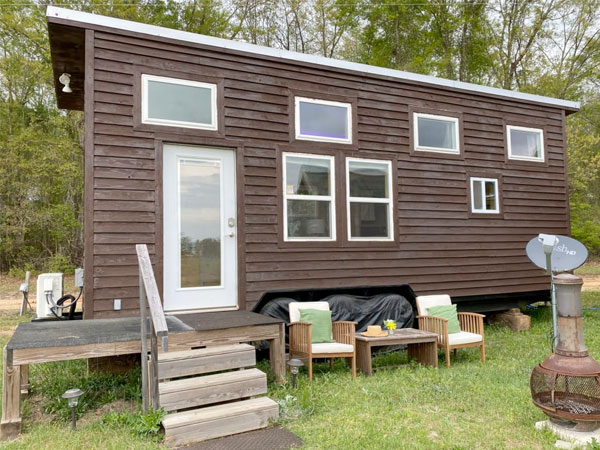
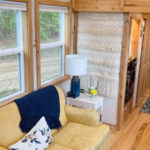


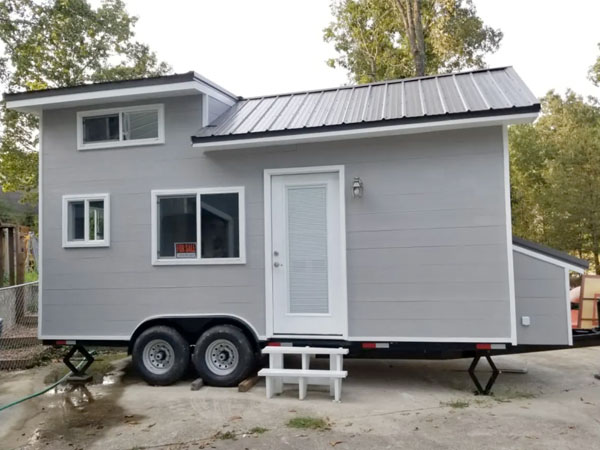


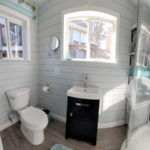
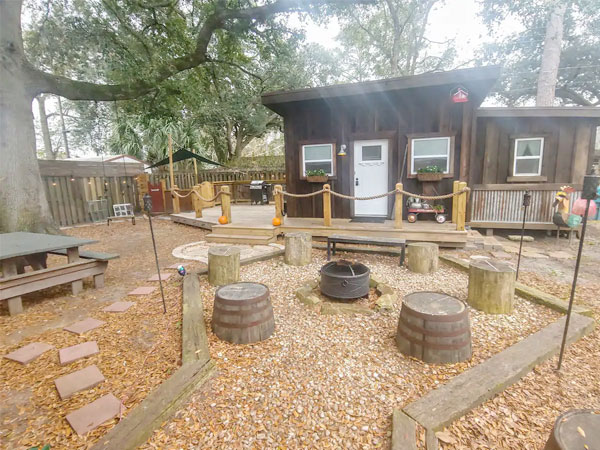
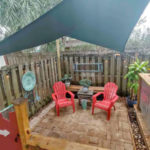
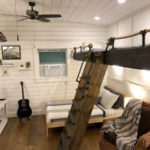
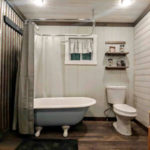
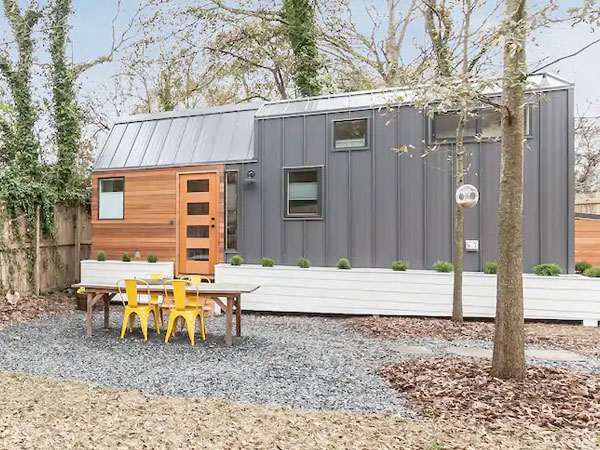



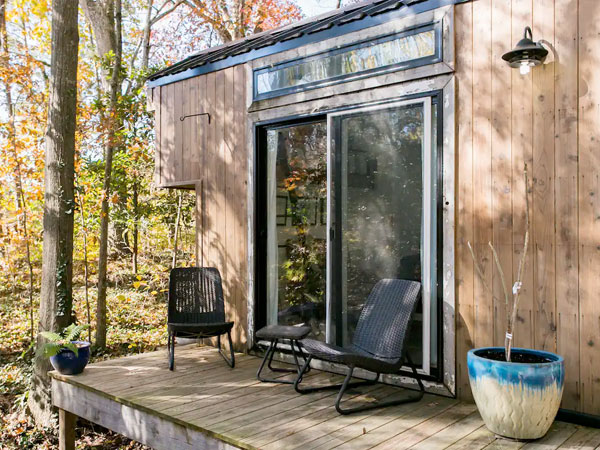

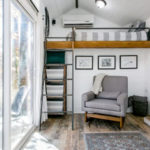

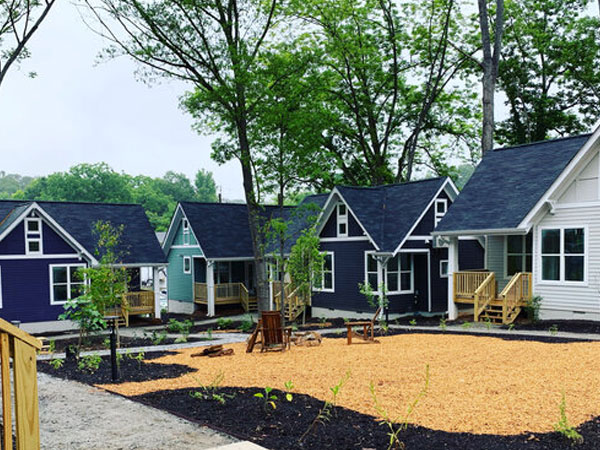
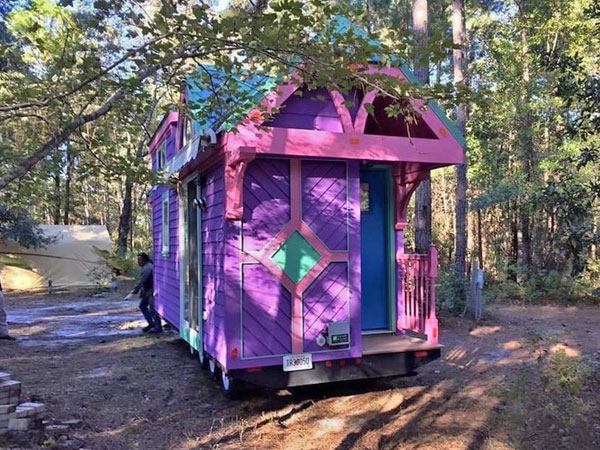
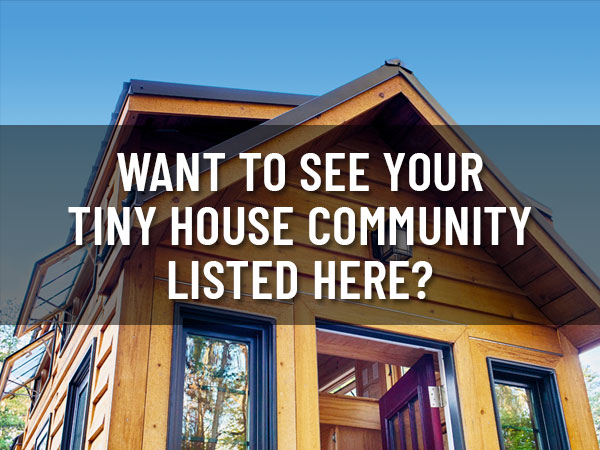
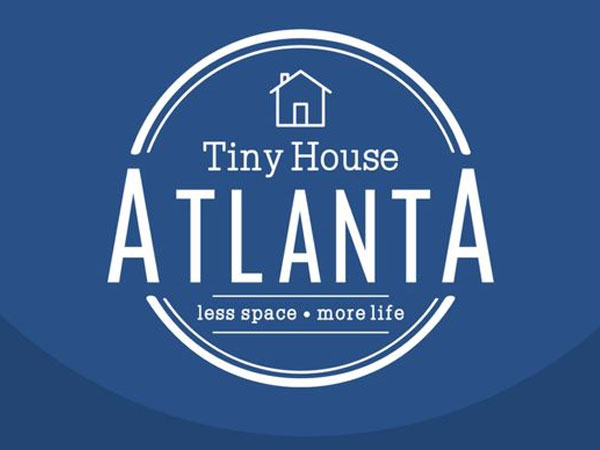
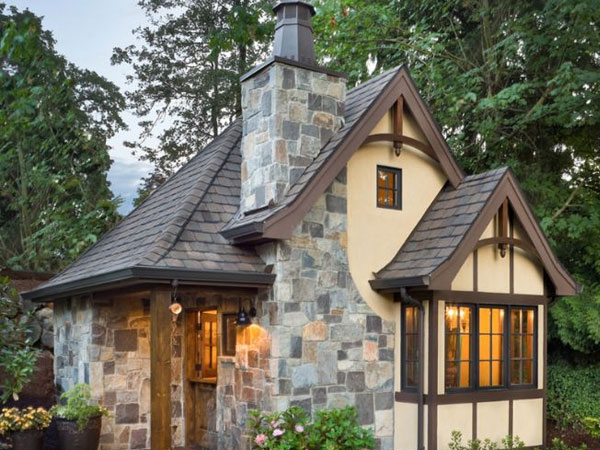
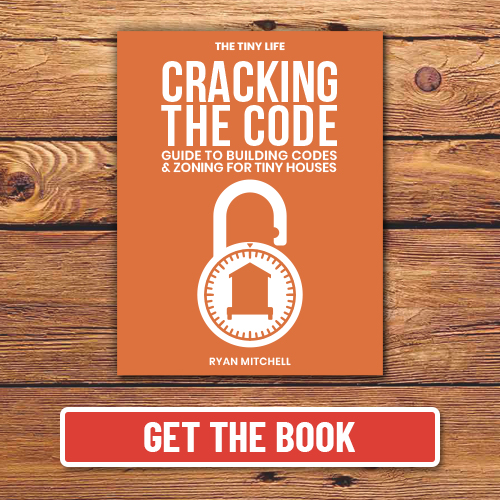
I love reading about tiny house builders and this blog post is no exception. I’m always interested in learning more about how people are living smaller and more sustainable lives. Thank you for sharing!
Desire to build a ADU.